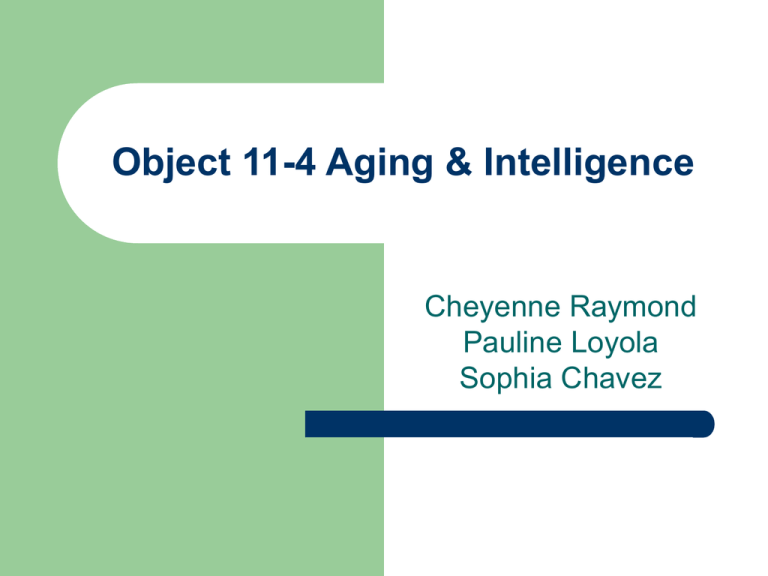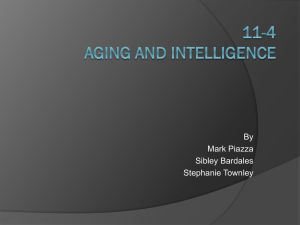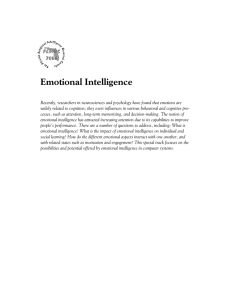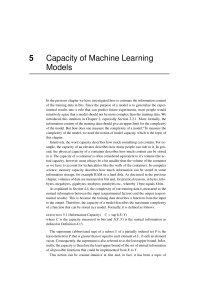Object 11-4 Aging & Intelligence Cheyenne Raymond Pauline Loyola Sophia Chavez
advertisement

Object 11-4 Aging & Intelligence Cheyenne Raymond Pauline Loyola Sophia Chavez Phase One: Cross-Sectional Evidence for Intellectual Decline Cross-sectional Study: A study in which people of different ages are compared with one another Researchers found that older adults give fewer correct answers than do younger adults in intelligence tests. Phase Two: Longitudinal Evidence for Intellectual Stability Longitudinal Study: Research in which the same people are restudied and retested over a long period. Researchers found that intelligence remained stable until late in life and even increased in some tests Phase Three: It All Depends Crystallized Intelligence: One's accumulated knowledge as reflected in vocabulary and analogies tests; increases with age. Fluid Intelligence: One's ability to reason speedily and abstractly, as when solving novel logic problems; tends to decrease during late adulthood. Conclusion We lose recall memory and processing speed, but we gain vocabulary and knowledge









